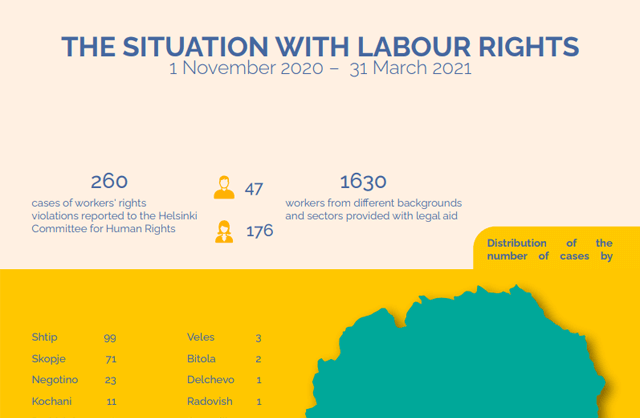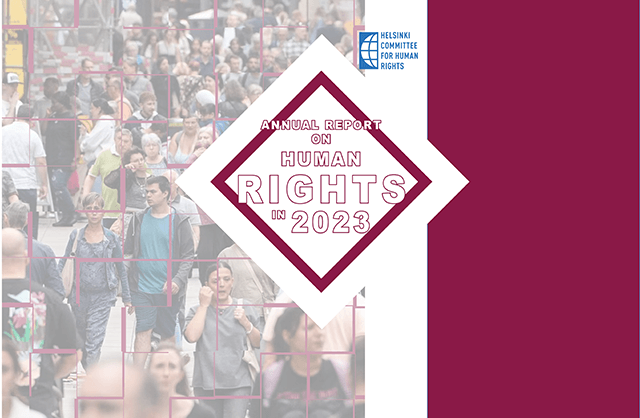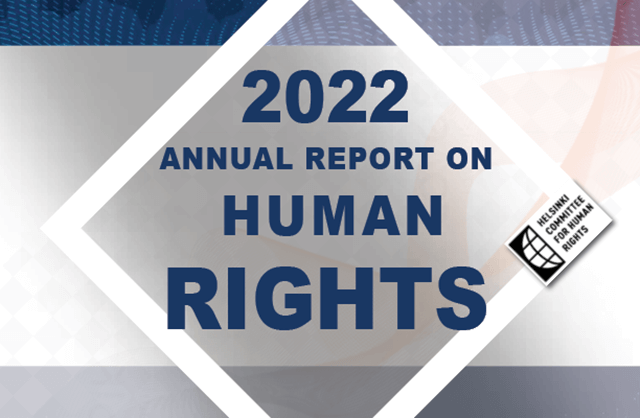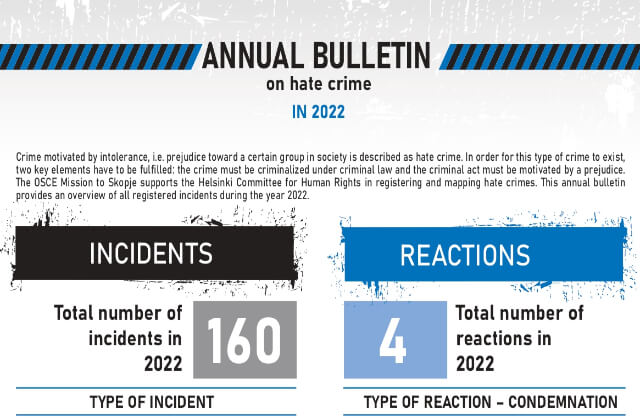The situation with workers’ rights 1 November – 31 March 2020, semi-annual infographic
April 19, 2021

The semi-annual report for the period from November 1, 2020 to March 31, 2021 shows the impact of the health crisis on workers’ rights in the last five months. This report summarizes the data from 260 cases in which we provided legal and paralegal assistance to 1630 workers.
Legal advice and / or information was most prevalent in relation to violations of the rights of textile workers, and it covers 141 of the total number of cases. The textile workers from Stip were one of the most affected due to the inadequate management of the crisis (99 cases). Violations were registered throughout the country, but most often in Skopje (71), Negotino (23), Kocani (11) and Probistip (8). It is the violations of workers’ rights in the textile industry that have shown the gender dimension of this crisis. Women in our country are predominantly represented in the labor force in the textile industry, which is by far the lowest paid industry and textile workers often receive a salary that is not much higher than the minimum. As much as 90 percent of the total number of employees in the textile industry are women. This means that the female workforce in this sector is among those most affected by the economic crisis caused by dealing with the pandemic.
Abuses of labor legislation and illegal payments of lower wages due to improper referral to the institute of “forced leave” meant that some of the textile workers who were “sent home” received a salary of about 7,500 denars. At the time of writing this semi-annual report, more than 6,000 textile workers had been sent on forced leave as employers waited for state financial assistance to subsidize wages. Many textile workers have not yet been paid for February, despite the fact that the cost of food and basic living is rising daily, and the payment of electricity and water bills is not delayed, nor is it waiting for workers’ wages.
The other most frequently registered violations related to unpaid vacation pay (K-15), dismissals, payment of salary below the minimum, unpaid salary supplements (overtime, night work, holiday work, past work), unpaid salary and / or salary reduction, violation of occupational safety and health regulations (workplace injury, non-compliance with coronavirus protection measures), forced termination of employment contract, harassment at work, violation of the right to annual leave and transformations of employment from indefinite to definite time.
The semi-annual report on the labor rights situation and data related to all 260 cases involving 1630 workers are available for download in the infographic below. The infographic covers the period from November 1, 2020 to March 31, 2021 and was prepared within the project “Improved Productivity through better Labour Legislation”, funded by the Good Governance Fund. The views and opinions expressed in this content do not necessarily reflect the views and opinions of the Government of the United Kingdom.


